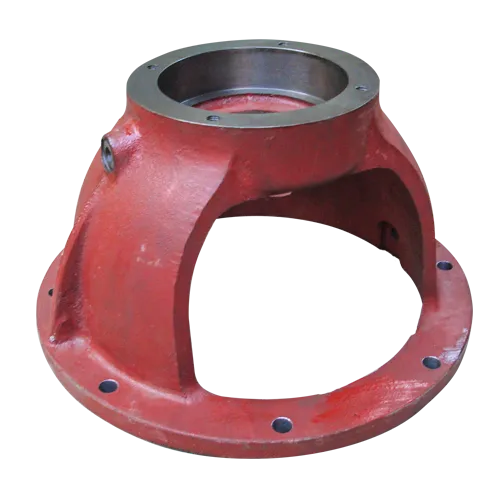Mobile:+86-311-808-126-83
Email:info@ydcastings.com
water pump broken in car
Understanding the Implications of a Broken Water Pump in Your Car
The water pump plays a crucial role in your vehicle's cooling system, ensuring that the engine operates at optimal temperatures. It circulates coolant (a mixture of water and antifreeze) through the engine block, radiator, and heater core. A broken water pump can lead to severe consequences for your vehicle if not addressed promptly, making it essential for every car owner to understand the implications of this critical component's failure.
Signs of a Broken Water Pump
Detecting a malfunctioning water pump early on can save you from costly repairs down the line. Common symptoms of a broken water pump include
1. Overheating Engine One of the most noticeable signs of a failing water pump is engine overheating. If the pump is unable to circulate coolant effectively, the engine temperature will rise rapidly, often indicated by a warning light on the dashboard.
2. Coolant Leaks A broken water pump can lead to coolant leaks, which may manifest as puddles under your vehicle. If you notice a bright green, orange, or pink fluid pooling beneath the car, it could be coolant leaking due to a damaged or corroded pump.
3. Unusual Noises A failing water pump may produce strange noises, such as a whining or grinding sound. These noises are usually caused by a loose or worn-out bearing within the pump.
4. Wet or Rusty Exterior Inspecting the exterior of the water pump can also provide hints about its condition. If you see rust, a build-up of grime, or a wet exterior, it may be a sign that the pump is leaking coolant.
Consequences of Ignoring a Broken Water Pump
water pump broken in car

Ignoring the symptoms of a broken water pump can lead to catastrophic outcomes for your vehicle. Here are a few potential consequences
1. Engine Damage The most severe risk of a malfunctioning water pump is engine damage. Overheating can warp engine components, including the cylinder head and block, potentially leading to blown head gaskets or a complete engine failure. Such repairs can be prohibitively expensive.
2. Radiator Malfunction A broken water pump can also compromise the radiator's functionality. Since the radiator relies on the water pump to circulate coolant, a loss of flow can lead to overheating, which in turn can damage the radiator and necessitate its replacement.
3. Reduced Fuel Efficiency An overheating engine often results in reduced fuel efficiency. When the engine runs hot, it can trigger the vehicle's computer to adjust fuel delivery, leading to decreased miles per gallon (MPG), which can cost you more at the pump over time.
4. Irreparable Damage In extreme cases, continued operation of a vehicle with a broken water pump can result in irreparable engine damage, requiring a full engine replacement. This not only costs thousands of dollars but may also lead to the car being deemed unusable.
Prevention and Maintenance
Preventive maintenance is key to avoiding a broken water pump. Regularly checking coolant levels and having your coolant system inspected can help identify potential issues before they escalate. Typically, it is advisable to replace the water pump when changing the timing belt, as both components are usually located close to each other, and their simultaneous replacement can save time and labor costs.
In conclusion, the water pump is an essential element of your vehicle's cooling system. Recognizing the symptoms of a failing pump and understanding the potential consequences of neglecting repairs can save you considerable time and money. Regular maintenance, prompt attention to issues, and replacing worn components can ensure your vehicle remains in good working condition, preventing the potentially disastrous outcomes of a broken water pump.
-
Why Should You Invest in Superior Pump Castings for Your Equipment?NewsJun.09,2025
-
Unlock Performance Potential with Stainless Impellers and Aluminum End CapsNewsJun.09,2025
-
Revolutionize Your Machinery with Superior Cast Iron and Aluminum ComponentsNewsJun.09,2025
-
Revolutionize Fluid Dynamics with Premium Pump ComponentsNewsJun.09,2025
-
Optimizing Industrial Systems with Essential Valve ComponentsNewsJun.09,2025
-
Elevate Grid Efficiency with High-Precision Power CastingsNewsJun.09,2025











